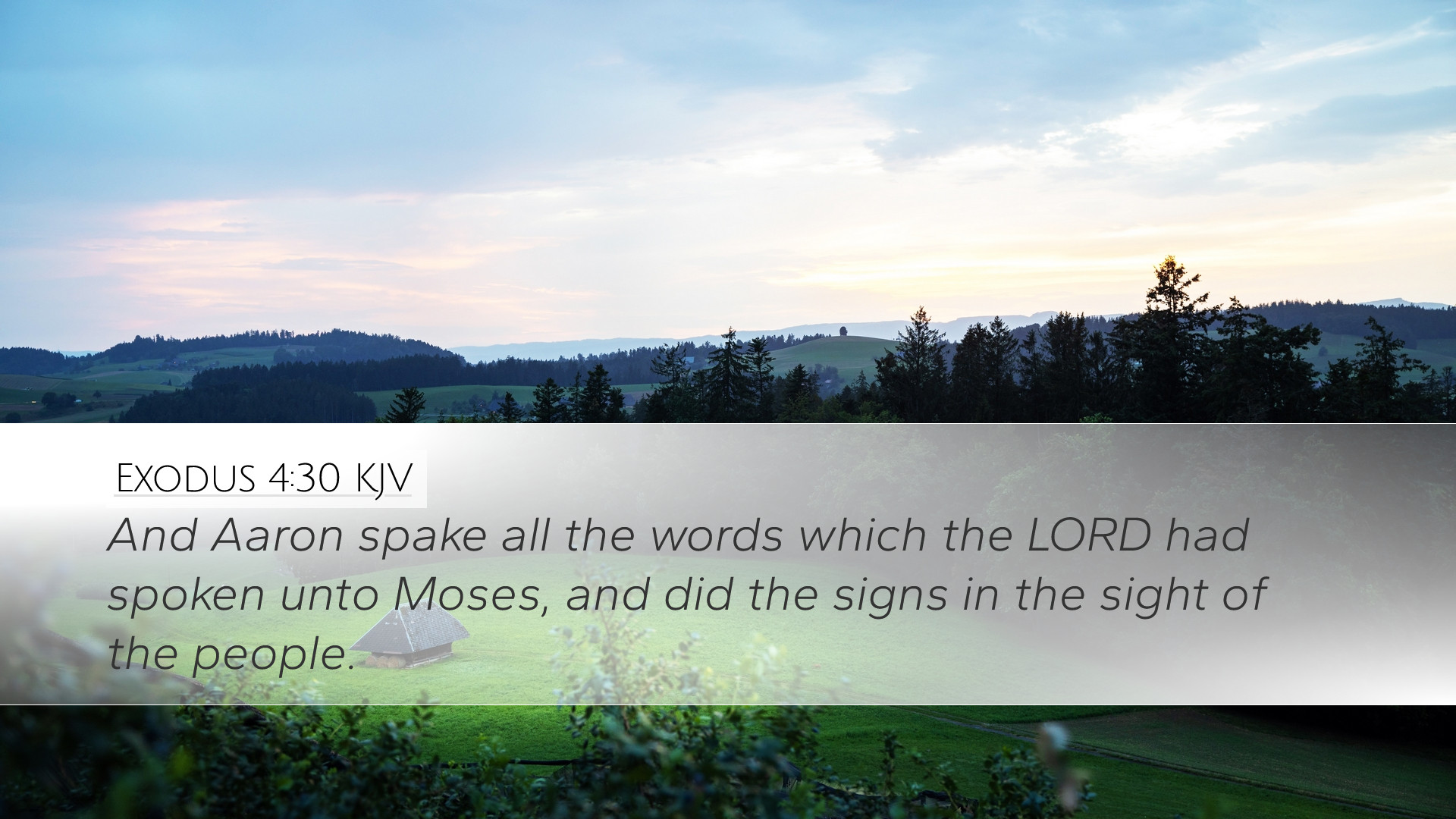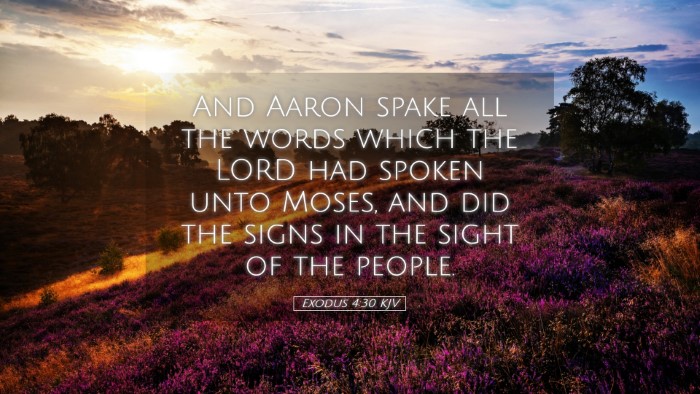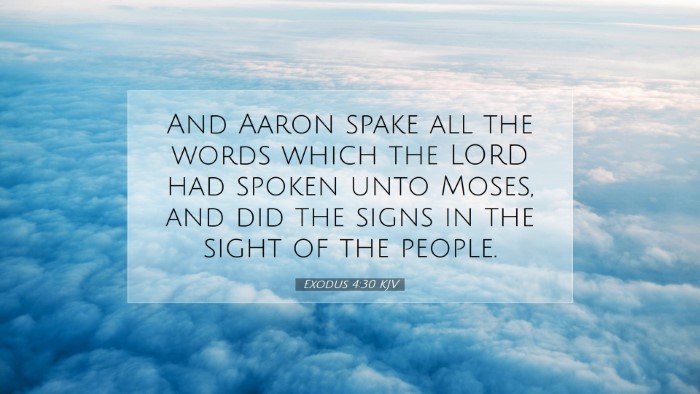Commentary on Exodus 4:30
Verse: "And Aaron spake all the words which the LORD had spoken unto Moses, and did the signs in the sight of the people."
Introduction
Exodus 4:30 serves as a pivotal moment in the narrative of the Exodus, epitomizing the partnership between Moses and Aaron as they embark on a mission to deliver the Israelites from Egyptian bondage. The significance of this verse lies not only in the obedience displayed by Aaron as he relays God's commands but also in the authenticity of the signs performed before the people.
The Role of Aaron
The text highlights Aaron's critical role as the spokesperson for Moses. In public domain commentaries, both Matthew Henry and Albert Barnes emphasize Aaron's position as an assistant to Moses, marking the divine choice of their sibling partnership.
- According to Matthew Henry, Aaron's speech signifies the importance of divine communication, emphasizing that God equips whom He calls. Aaron's eloquence serves as a divine provision for Moses's struggle with speech.
- Albert Barnes indicates that Aaron's role underscores the human aspect of God’s call; addressing Moses’ apprehensions by appointing Aaron as a mouthpiece demonstrates God’s understanding of human limitations.
The Nature of Their Mission
The collaborative effort of Moses and Aaron to communicate God’s message reflects a model of teamwork in ministry. Adam Clarke elaborates on the theological implications noted in this verse, identifying it as an illustrative representation of the authority of God’s word being carried out through human agency.
- The significance of Aaron speaking the words of the Lord shows the crucial link between divine command and human action, a theme echoed throughout the scriptures.
- This reliance on a trusted partner illuminates the broader context of community in the mission, emphasizing that God does not intend for His purposes to be accomplished in isolation.
The Miraculous Signs
The latter part of the verse where Aaron performs signs in the sight of the people is of utmost importance. Commentators like Henry suggest these miracles served two key purposes:
- Firstly, they validated the message of Moses and Aaron, substantiating God’s authority and the veracity of the mission. The signs were meant to stir the hearts of the Israelites toward belief and hope.
- Secondly, as Barnes notes, signs functioned as a warning to the Egyptians, foreshadowing the divine judgment that was to follow. These miracles acted as both a comfort to the oppressed and an announcement of God’s intent to respond to injustice.
Response of the People
The narrative surrounding Exodus 4:30 inherently anticipates the reaction of the Israelites to the accompanying signs. The expectation is set for a dual response; Clarke posits that the signs would evoke faith and rally the people around Moses and Aaron's leadership.
- The emotional weight of oppression likely fostered a profound receptivity to Moses and Aaron's message, thereby facilitating unity among the Israelites.
- However, as the story unfolds, it becomes evident that despite the signs, not all would respond in faith, pointing to a wider theme of disbelief that recurs throughout Exodus.
Theological Insights
This verse encapsulates several theological insights pertinent to pastors and theologians:
- Divine Empowerment: The collaboration between Moses and Aaron illustrates that God equips individuals for service according to His purposes, which is a central tenet of Christian leadership.
- Community in Ministry: The joint mission reflects the importance of community and shared leadership in the Church, advocating for cooperation within expected roles.
- Validity of Signs: The use of signs as a confirmation of God’s word serves as a reminder of the intertwining of faith and evidence—God’s workings through history are meant to bolster belief.
Conclusion
Exodus 4:30 is a testament to God's faithful ambition to liberate His people through divinely appointed leaders. The obedience of Aaron highlights a crucial aspect of spiritual leadership, where articulation of God’s commands and the performance of signs lead to communal transformation.
Through the insights drawn from various public domain commentators, we are reminded of our roles in God’s mission, the necessity of collaboration, and the ongoing relevance of signs and wonders that point us back to the divine source of our faith and hope.


